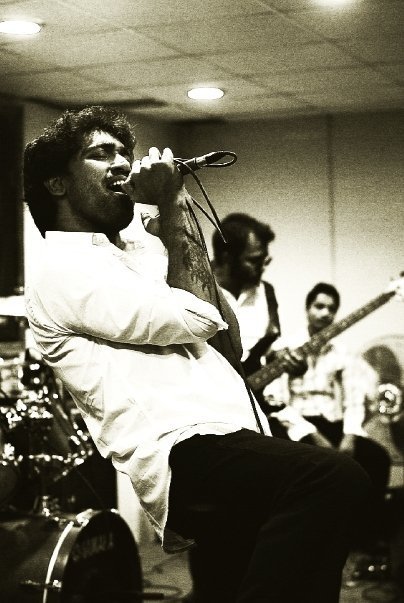


Ministry officials contacted their counterparts in India, who suggested that Miles should seek redress by taking the violators of copyright to court. The band members contacted lawyers well versed in international IP matters and the Ministry of Commerce. (guitar & vocals) and Syed Ziaur Rahman Turjo (drums). The violation of intellectual property (IP) rights in the song hurt the business interests of Miles, and, by extension, of Bangladesh. The offer should have come to us,” said Hamin.

We had planned to release the Hindi versions of our songs. “Just as Santana cannot leave a concert without performing ‘Black Magic Woman,’ we cannot conclude a concert without performing Phiriye Dao. of Calcutta, and became very popular in both Bangladesh and West Bengal, India. The song was also included in their 1997 album ‘Best of Miles, Vol. The band composed the song Phiriye Dao in Bengali for their 1993 album, Prathasa (Hope). Even the beat break-ups, the use of guitar and filler notes are the same,” guitarist and vocalist, Hamin, told the Bombay Times.

Otherwise, “the lyrics are a shadow of ours, the tune is the same. When the song Jana Jane Jana was played in the movie, the band members could hardly believe their ears. Manam, Hamin and other members of Miles were alerted by fans that their song Phiriye Dao Amar Prem (Give me back my love) had been copied in the soundtrack of Bollywood block-buster movie, Murder. Miles, a popular Bangladeshi music band had accused music director Anu Malik, a music-mogul of the Mumbai movie world, of pirating one of its original “It’s daylight robbery in Murder, screamed a cult Bangladeshi rock band - and its plea has been heard,” wrote the Telegraph of Calcutta in its front-page story on the Hindi movie, Murder (Telegraph, ). This is an abridged version of a case study written by Abul Kalam Azad, Professor of Economics at the University of Chittagong, Bangladesh, and first published by the World Trade Organization (WTO) in “ Managing the Challenges of WTO Participation: 45 Case Studies.” Professor Azad presents the case as a successful example of how international intellectual property agreements enabled a rock band in Bangladesh to challenge successfully the unauthorized use of one of their songs by a filmmaker in India. Rock ’n Roll in Bangladesh: Protecting IP Rights across Borders


 0 kommentar(er)
0 kommentar(er)
